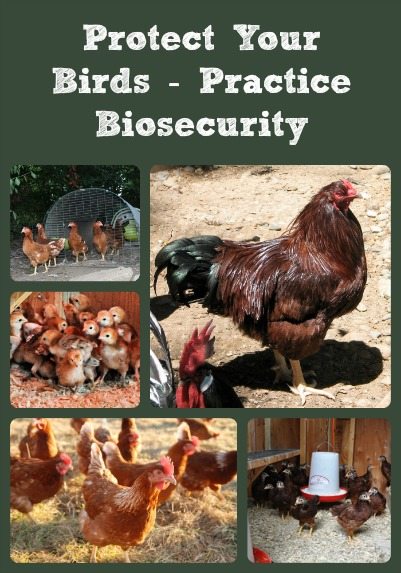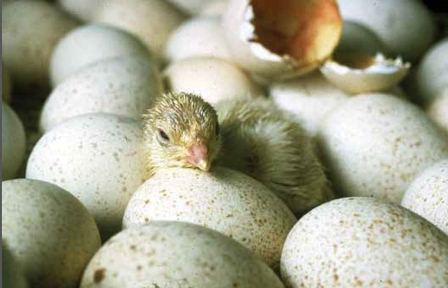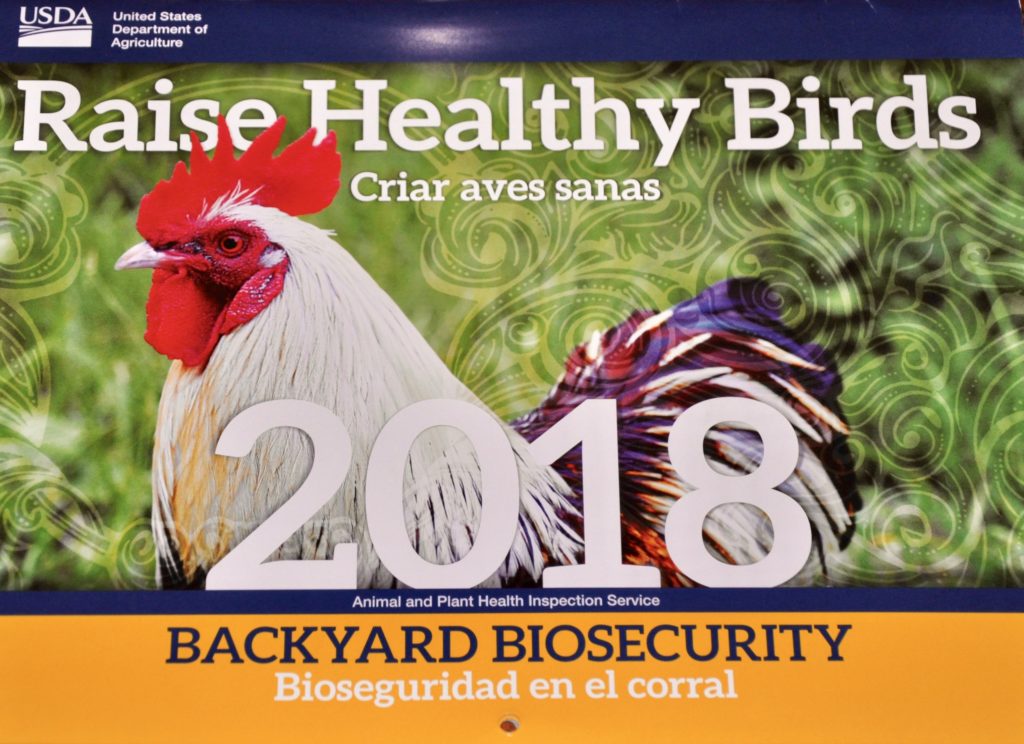The 2018 “Backyard Biosecurity” calendar from the USDA (you can get instructions for ordering your FREE 2018 calendar HERE), and 
It’s so easy to think that it won’t happen to you and let up your guard, but disease can be brought in many ways and can destroy your flock. We learned the hard way several years ago when we brought in two barred rocks from a “reputable” source. The birds brought Infectious Bronchitis with them and our flock had to be culled.
So, follow these practices (excerpted from the Backyard Biosecurity calendar recommendations – click on the calendar image to view it online) to keep your birds safe: Keep It Away and Keep It Clean!
Keep It Away – Restrict access to your property and your birds. Wild birds or new birds you’ve just purchased could carry disease that spread quickly to your flock. Here are some things you can do to keep disease away from your birds:
- If visitors have birds of their own, do not let them near your birds.
- Avoid visiting farms or other households with poultry.
- If you’ve been near other birds or bird owners, such as at a feed store, pet store, or bird club meeting, clean and disinfect your clothing, shoes, cages, and equipment before going near your birds.
- Have your birds been to a fair or exhibition? If so, keep them separate from the rest of your flock for at least 2 weeks after the event. If you’ve bought new birds, they should be kept separate for at least 30 days.
- Buy birds from a reputable source so you know you are getting healthy birds.
- Do not share lawn and garden equipment, tools, or poultry supplies with your neighbors or other bird owners, but if you must, disinfect them before bringing them home.
- Consider fencing off the area where you keep your birds and make a barrier area, if possible. Allow only people who take care of your birds to come into contact with them.
- Keep wild birds away from your flock. Wild birds should not have contact with your flock because they can carry germs and diseases.
- Properly dispose of dead birds. Bird deaths are a fact of life. If one of your birds dies, call your local county extension agent, State department of agriculture, or veterinarian for guidance.

- Wash your hands thoroughly before entering your bird area and before working with your birds.
- Clean cages and change food and water daily.
- Clean and disinfect equipment that comes in contact with your birds or their droppings, including cages and tools.
- Make sure to clean off all dirt and manure before you disinfect equipment.
- If you do borrow tools or cages, clean and disinfect them before they reach your property.
- Scrub your shoes with disinfectant. This may seem like a lot of work, but your boots and shoes can easily track disease to your birds. Or keep a separate pair of shoes or boots near your cages to wear only when working with your birds.
- Wear clean clothes that you use only when you feed and care for your birds.
Here’s to healthy birds!

Leave a Reply